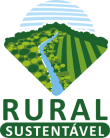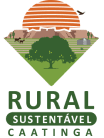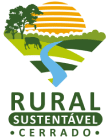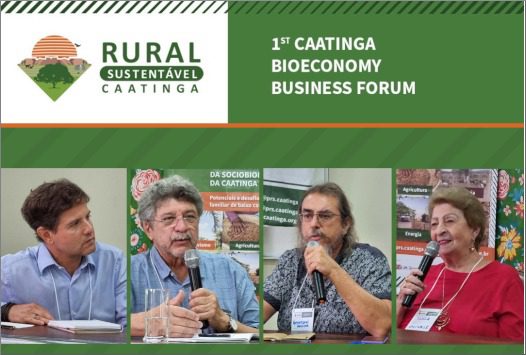Debate brought together representatives from MAPA, Embrapa and Univasf - public organizations in Brazil
Promoted by Low Carbon Agriculture – Caatinga Project, the 1st Caatinga Bioeconomy Business Forum, held on March 14, brought together representatives from the Federal University of the São Francisco Valley (Univasf), the Ministry of Agriculture and Livestock (MAPA) and the Brazilian Agricultural Research Corporation (Embrapa). At the event, participants spoke about the global need to face the challenges of food security and reduce the impacts caused by climate change – selecting, in this scenario, of the contributions of the Caatinga biome.
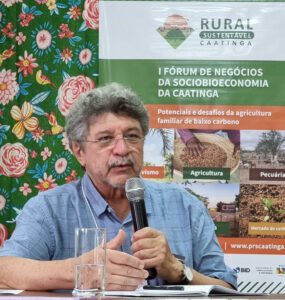
Pedro Leitão, Director of PRS-Caatinga
“How can we contribute to ensure food security for 9 billion people 30 years from now? How can the Caatinga biome help the climate agenda? How do cooperatives deal with the possibility of bringing low-carbon products to market?”. These were some questions asked by Pedro Leitão, director of PRS-Caatinga and mediator of the first panel, to initiate the debate on business opportunities for small producers based on bioeconomy.
The bioeconomy deals with the sustainable use of natural resources and has been consolidating itself as a strategy to face climate change and the global challenges of the United Nations Organization’s 2030 Agenda . The event included relevant themes, such as: managing the use of land to have less environmental impacts, conservation of biodiversity, income promotion and generation of work and livelihood improvement.
The debate fomented the exchange of ideas and experiences of specialists who work directly with the Caatinga biome, thus knowing its reality and particularities. Paulo Eduardo de Melo, director of AgroNordeste, from MAPA, emphasized in his speech the concern with the small producer’s economic sustainability . The Ministry is the main beneficiary of the technical cooperation agreement between the Brazilian and UK governments.
The AgroNordeste policies aims to value the biodiversity and the regional products, which I particularly call “product identity”. For instance, you can’t get honey from the Caatinga biome, if the flowers are not located in this biome. It is very important that we make the biodiversity a conservation through its sustainable use. We want to develop sustainable productive systems, using the biodiversity and the available technologies”, said Melo.
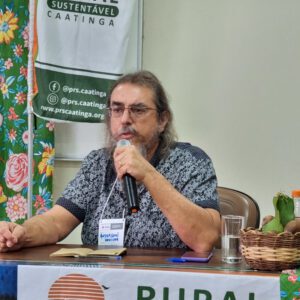
Anderson Sevilha, from the Project Bem Diverso
The national coordinator of the Bem Diverso Project and researcher at Embrapa Genetic Resources and Biotechnology, Anderson Sevilha, highlighted the importance of this event and how the persistence and resilience of the small producers are important to the biome.
Sevilha drew attention to the size of the challenge for cooperatives to access markets. “Producers and cooperatives are responsible for the whole supply chain processes that, in a normal trajectory of a company, would have a large organization behind it to take care of the production system, logistics, production training, identification of market needs, commercialization , economic management with sustainable models, and also taking care of the business, accounting, administrative and people management itself.
Technologies and training must be at the service of family farmers
The farmers must manage, conserve and restore ecosystems to continue producing. However, it is necessary to make technologies and continuing education available, from agricultural schools to training in Technical Assistance and Rural Extension, commented the Embrapa specialist. “It is necessary to bring traditional knowledge to the same level as scientific knowledge. There are many solutions, but we need to identify and resolve obstacles to end the hunger of more than 33 million people and bring food security to around 100 million people, as Brazil has lots of resources and wealth within its biomes,” he said.
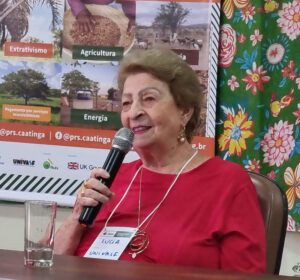
Teacher Lucia Marisy, from UNIVASF
As a hook for this speech, the permanent professor of the Graduate Program in Agroecology and Territorial Development (PPGADT) at Univasf, Lucia Marisy, detailed that the institution’s activities are focused on continued work, investment in Education, Social, Health and Food Security as mechanisms to combat poverty and hunger.
– All of this is linked to climate change. We are gradually establishing models that can serve as a research field, such as Sisteminha Embrapa, which works on the product model.



